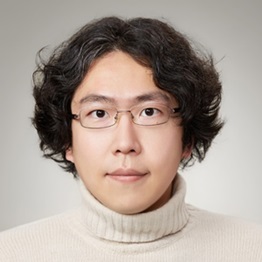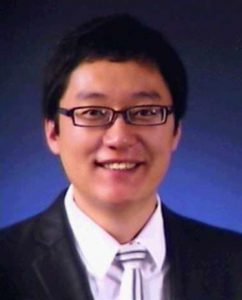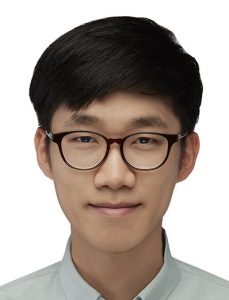Three members of KAIST’s Math Department were selected for the award.
Each year the POSCO TJ Park Foundation, established by a Korean multinational steel-making company, POSCO, in 1971, selects and supports young scientists including post-graduate students in Korea to foster creative research in basic sciences.
This award, the TJ Park Science Fellowship, is annually presented to approximately 30 scientists in five areas of mathematics, physics, chemistry, life sciences, and convergence study and offers each awardee with a total of 70,000 USD research grant for two-three years.
Professor Hyungryul Baik, Postdoctoral Researcher Jongbaek Song, and a doctoral student of an integrated MS/Ph.D. program, Seokjoo Chae, were among the 32 recipients of the TJ Park Science Fellowship 2017, the Foundation announced on October 11, 2017.
Professor Baik’s research interests are low-dimensional topology and geometric group theory. He received the award for his research project on “how quickly a surface homeomorphism increases the length of curves on the closed surface.” The speed at which the length of the curve is increased is closely related to the geometric and dynamical properties of the surface homeomorphism, and it is aimed to see how the rate meets certain algebraic properties using the methodology of number theory. This is also closely related to the study of the moduli space of Riemann surfaces by the late Professor Maryam Mirzakhani, the first female mathematician who received the Fields Medal in 2014.
Postdoctoral Researcher Jongbaek Song studies topological spaces that have various torus symmetries. He proposed a research project entitled “The Topology of Singular Toric Varieties” for the POSCO Science Fellowship. He tries to extend the cohomological rigidity problem discussed in smooth toric manifolds to toric orbifolds. In general, one can hardly expect that the cohomology ring classifies certain topological spaces. However, there are many affirmative results supporting that smooth toric manifolds are cohomologically rigid. For orbifolds, we need to understand their integral cohomology rings since the cohomology ring with real or rational coefficients loses the information of singularities. His research is aimed to classify toric orbifolds up to homotopy equivalences.
Seokjoo Chae, a doctoral student of Professor Jae Kyoung Kim, works in mathematical biology. He proposed research on the relation between p53 protein and circadian rhythm. The p53 protein is well-known as a tumor suppressor protein. As the circadian clock regulates the 24-hr period, the amount of p53 protein is also controlled. Thus, if the circadian clock malfunctions, one is more likely to get cancer. However, it is not well understood how p53 protein and circadian clock interact. Seokjoo Chae’s study is to understand the mechanism through mathematical modeling. On the other hand, as the amount of substances change dynamically, it is impossible to assume Quasi-steady state to make simulations efficient. To develop a new approximation tool to solve this difficulty is his another goal.
 |
 |
 |
||
| Hyungryul Baik | Jongbaek Song | Seokjoo Chae |

